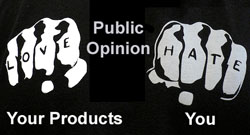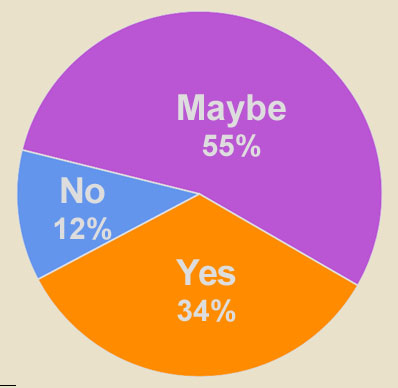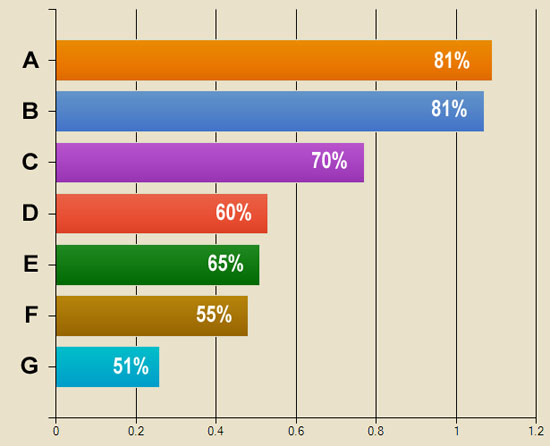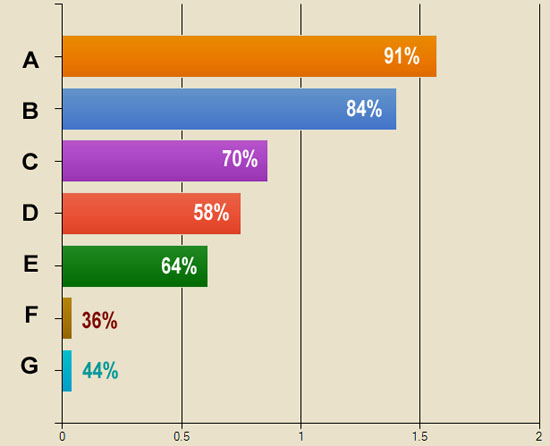How the Drug Industry Can Earn Back the Public’s Trust (Survey ran from 4 February 2009 through 14 March 2009. N=113 respondents; re-opened 9 May 2013)
See Resources & Further Reading below…
This survey is open for additional responses. You can take the survey here.
 “I blame myself and those of us in the industry for the bad reputation that the pharmaceutical industry has,” said Ray Kerins, former global PR chief at Pfizer, during a conference presentation.
“I blame myself and those of us in the industry for the bad reputation that the pharmaceutical industry has,” said Ray Kerins, former global PR chief at Pfizer, during a conference presentation.
Kerins found it incredible that despite making products designed to save lives and cure diseases, the drug industry enjoys such low esteem among the public. “How in the hell do we have such a bad reputation?” was his way of expressing it. “It makes no sense.”
Only 34% of the patient groups responding to the 2012 PatientView global survey of 600 international, national, and regional patient groups, stated that multinational pharma companies’ had an “Excellent” or “Good” reputation during the course of that year, compared with 42% in 2011 — a 19% decline.
These results place multinational pharma companies 6th out of seven healthcare industries for reputation among patients during 2012. Only for-profit health insurers fare worse, with just 24% of the 2012 respondent patient groups saying that this healthcare stakeholder has an “Excellent” or “Good” corporate reputation.
Is the drug industry’s bad reputation is deserved? What are the specific reasons why the public has such low esteem for the industry?
This survey attempts to answer these questions as well as get some ideas for how the drug industry can improve its public image.
Survey Results:
The overall results from the initial survey run are summarized in charts below. Access a more detailed online Summary of Responses plus view comments from respondents here. You can take the survey yourself here.
Respondents were first asked: “In general, do you believe the industry’s bad reputation is deserved?” (Responses: Yes, definitely; No, definitely not; Maybe, it depends; No opinion one way or another). You can take the survey and answer this question here.

Respondents were asked: “Regardless of being deserved or not, the drug industry’s poor image among the public, which includes consumers and physicians, must be due to some issue or issues. Please indicate your level of agreement or disagreement with the following statements, which are not mutually exclusive of one another.” Response choices (each response had a numerical rating as shown in parantheses): Strongly Agree (+2), Somewhat Agree (+1), Neither Agree Nor Disagree (0), Somewhat Disagree (-1), Strongly Disagree (-2). You can take the survey and answer this question here.
The statements were:
- The industry has gotten a bad rep because of lack of transparency regarding negative clinical data.
- It’s bad reputation is primarily due to the “high costs” of prescription drugs.
- The industry has not done enough to educate the public about the benefits it provides.
- Among physicians, the industry has lost its reputation because it has “marginalized” sales reps as mere “lunch delivery” people.
- The industry’s bad rep is due primarily to the huge profits it enjoys.
- The industry has lost the trust of consumers because it promotes treatments for frivolous, non-medical conditions.
- The media is the main culprit because it reports mostly bad news about the industry and not the good that it does.

In the above chart, the length of the bars represent the average rating. The percentages represent the percent of respondents who answered Strongly Agree or Somewhat Agree.
Respondents were asked: “Regarding solutions for improving the industry’s reputation, please indicate you level of agreement or disagreement with the following suggestions (again, not all are mutually exclusive).” Response choices (each response had a numerical rating as shown in parantheses): Strongly Agree (+2), Somewhat Agree (+1), Neither Agree Nor Disagree (0), Somewhat Disagree (-1), Strongly Disagree (-2). You can take the survey and answer this question here.
The statements were:
- It should be much more transparent in reporting clinical trial results.
- It should do more to promote comparative studies to prove the efficacy of prescription drugs.
- It should greatly expand its patient assistance programs to cover more people (eg, the unemployed).
- It should support Medicare’s right to negotiate prices under Part D.
- It should ramp up its PR effort (eg, pay much more attention to the media by “engaging” and “educating” them).
- The drug industry should freeze or lower prescription drug prices for everyone
- It should not lower prices across the board, but it should help by re-imbursing all or part of co-payments made by people with prescription drug coverage.

In the above chart, the length of the bars represent the average rating. The percentages represent the percent of respondents who answered Strongly Agree or Somewhat Agree.
NOTE: 46% of respondents said they were VERY supportive of the pharma industry and another 34% said they were SOMEWHAT supportive of the industry. 27% said they were a pharmaceutical, biotech, or drug device company employee (commercial or research). 50% said they were employed at an ad agency/marketing/communications or other company having pharmaceutical companies as clients and 7% said they were a Physician, nurse, or other healthcare professional/medical student and 11% were members of the general public “unaligned with pharma industry.”
This survey is open for additional responses. You can take the survey here.




![6 Digital Tools at the Center of Healthcare Digitalization [INFOGRAPHIC]](http://ec2-54-175-84-28.compute-1.amazonaws.com/pharma-mkting.com/wp-content/uploads/2021/04/6DigitalTools_600px-100x70.jpg)




